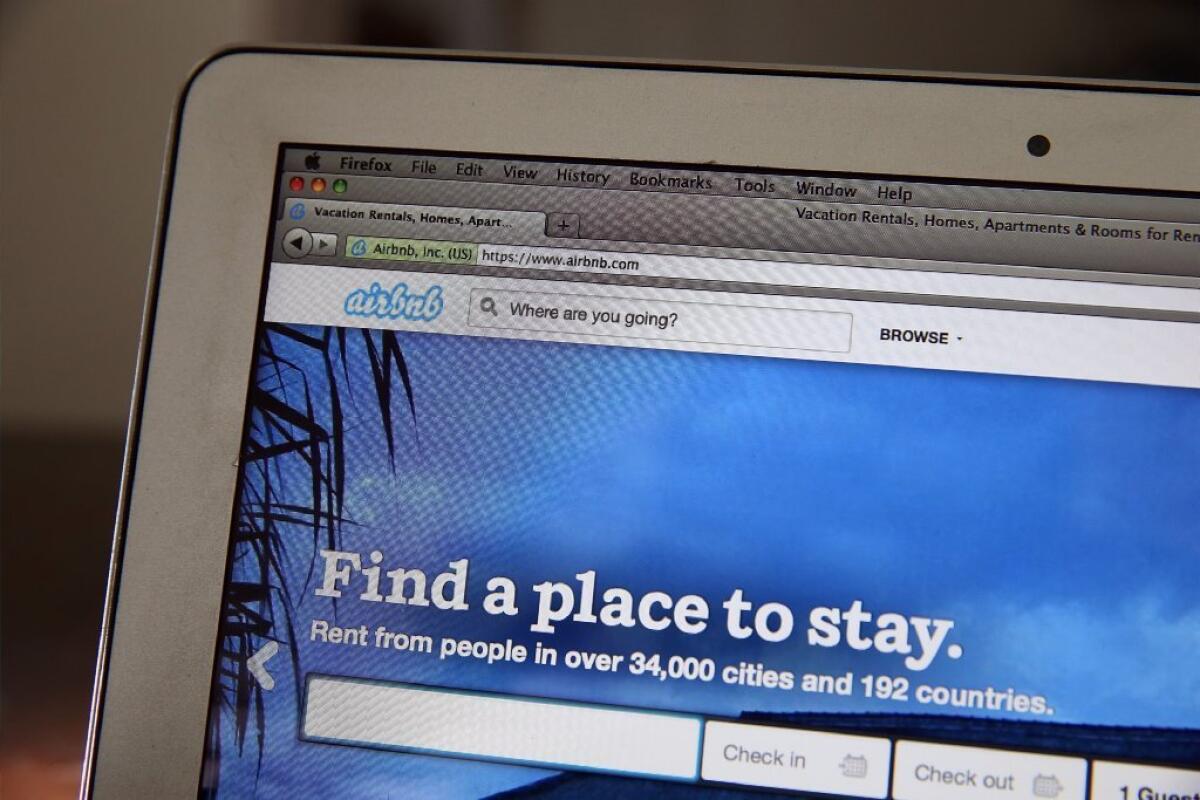Opinion: Don’t let the sharing economy of Uber, Airbnb become the scofflaw economy

- Share via
Say “underground economy,” and what do you think of?
Low-wage workers, some of them here illegally, toiling away in the shadows for bosses who may pay them a less-than-legal wage under the table, and who dodge paying the taxes on those wages. Right?
But now the headlines are about the other end of the underground economy, which isn’t hiding anywhere but flaunting itself. Big money is changing hands, and it seems that none of it going to pay the taxes and fees that it should.
Ride-sharing, room-sharing -- how about responsibility-sharing?
A California state senator, a Sonoma County Democrat, wants to give cities the authority to collect taxes from people who rent private rooms and even houses through online services like Airbnb. A fellow state senator, a Compton Democrat, wants full disclosure requirements for online house-sharing firms, including any fine-print leases banning such subletting.
And across California, nearly a score of taxi companies are suing ride-sharing company Uber over competition and safety questions. Prosecutors in L.A. and San Francisco have already gone after Uber on consumer-protection grounds.
I am all for a sharing economy. It’s innovative, exciting, nimble and responsive. And because it is the economy of the future, all the more reason to start putting in some regulatory scaffolding for it now. A sharing economy also means paying its fair share, too.
Two issues underlie this. The first is unfair competition, like the wrangling that L.A. did over food carts that operate without without health permits and inspections and licenses and taxes, undercutting the brick-and-mortar restaurants that do.
Taxis in L.A. do not have the best PR profile. I once joked, sort of, that the one place you’re be sure to find a cab in L.A. is circling City Hall during a periodic protest over regulations. The taxi biz hasn’t adapted very adroitly to Angelenos’ new preferences for getting around. Taxis are not as cheap or as fast as ride-sharing services, but at least they don’t do up-pricing during high-demand times.
As for room- and house-sharing services such as Airbnb – caveat emptor? Bedbugs or slippery showers? Online reviewers warn about outright frauds and scams, while other users are thrilled with price and flexibility. It’s all so profitable that in the Bay Area, landlords are opting for short-term house and room rentals rather than renting or leasing to long-term tenants, and whacking a housing market that’s already infinitesimally limited and enormously expensive.
The second issue: When these online services become freeloaders by not paying taxes, they take advantage of residents and businesses whose taxes pay for the things that make Uber and Airbnb and their ilk succeed in the first place -- decent roads, police-patrolled streets, reliable water and sewer services, even public utilities.
The old, low end of the underground economy already costs taxpayers tens of millions of dollars a year. The new, high end shouldn’t be able to do the same.
And official California shouldn’t let the “sharing economy” become the “scofflaw economy.”
Follow Patt Morrison on Twitter @pattmlatimes
More to Read
A cure for the common opinion
Get thought-provoking perspectives with our weekly newsletter.
You may occasionally receive promotional content from the Los Angeles Times.










